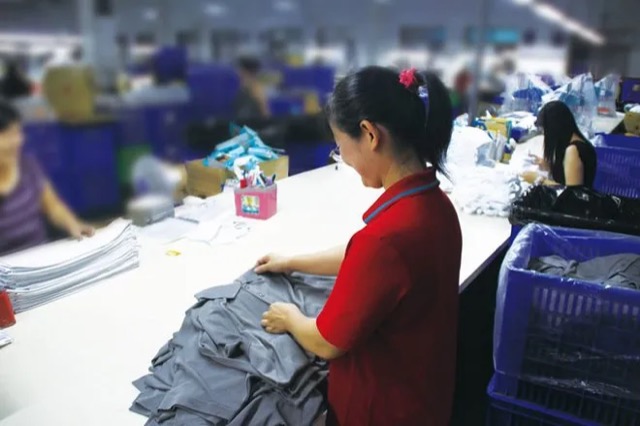SLCP X SAC on safe and secure work environments


COVID-19 continues to expose existing structural inequalities within fashion’s value chain, with workers disproportionately impacted. Despite increased industry adoption of social assessments in an effort to be more transparent, the industry has at large failed to converge efforts. This has not only resulted in time-consuming and duplicative audits for manufacturers but has also been of huge financial cost to brands and retailers.
Systemic change cannot be achieved alone, it requires collaboration of several stakeholder groups. The Social & Labor Convergence Program and Sustainable Apparel Coalition’s latest partnership creates a supportive environment towards the development and wide scale adoption of common global assessments for the industry to drive greater performance improvement.
The Social & Labor Convergence Program (SLCP) is a multi-stakeholder initiative with the mission to implement a converged assessment framework that will eliminate audit fatigue and support stakeholders’ efforts to improve working conditions in global supply chains. SLCP has brought together diverse stakeholders to create and implement a system and common tool for a high-quality comparable data set on working conditions that can be used by all industry stakeholders. The tool, the Converged Assessment Framework (CAF), increases transparency in supply chains, reduces the need for social audits and ultimately enables users to redeploy resources into improving working conditions.
The Sustainable Apparel Coalition (SAC) is a global, multi-stakeholder non-profit alliance for the fashion industry behind the development of the Higg Index, a standardised value chain measurement suite of tools for all industry participants. The tools measure environmental and social & labour impacts across the value chain with which the industry can address inefficiencies, resolve damaging practices, and achieve socio-environmental transparency.
As SLCP’s incubator, SAC stands to be the first standard holder to fully accept SLCP data and is one of the largest adopters of the CAF.
To drive greater performance improvements through the scaled adoption of common global assessments for the industry, SAC has fully committed to the implementation of the SLCP’s CAF, acting as the backbone of the Higg Facility Social Labor Module (FSLM). This way, SAC can drive the converged measurement of social conditions across their 200+ members – accounting for a significant proportion of the industry, achieving 3318 verified FLSM completions to date.
By leveraging the CAF through the FLSM, SAC signifies to the industry that using converged tools is essential for improving working conditions – eliminating duplicative and repetitive proprietary social and labour audits for facilities with a single verified assessment. Additionally, providing high-quality data that can be translated into meaningful insights that drive pre-competitive collaborations, prompt action, accountability and inform consumer choice. As the CAF continues to evolve, the SAC will work with its members to scale adoption of the tool and influence its development to ensure that it remains relevant and useful for all stakeholders.
– Reduces audit fatigue at facility level
– Gives facilities ownership of their social and labour data and how they share it
– Produces end-users with a high-quality, credible verified set of social & labour data
– Provides comparable, actionable data that can inform remediation
To find out more and be a part of SLCP’s multi-stakeholder initiative, contact SLCP here.
To find out more about the work of SAC, contact SAC here.
“The collective power of SLCP and GFA will lead to industry alignment, shifting resources away from duplicative social audits towards improved working conditions in supply chains. SLCP’s Converged Assessment Framework will be a key source of credible verified data to hold the industry accountable to the CEO agenda’s social priorities.” – Janet Mensink, Executive Director, Social & Labor Convergence Program
“Partnership is the new leadership, and we need collective action to succeed as an industry. By collaborating with the SLCP and leveraging the CAF at scale, we can help brands, retailers, and manufacturers assess their social impacts and strategically direct valuable resources towards efforts that meaningfully improve conditions for garment workers globally.” – Amina Razvi, Executive Director, Sustainable Apparel Coalition